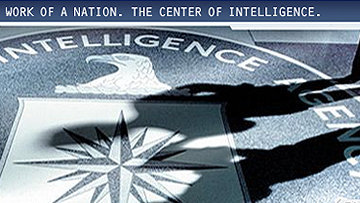MOSCOW, January 28 (RAPSI, Ingrid Burke) - The US Department of Justice (DOJ) has moved to dismiss a case arising from investigative journalist Jason Leopold's efforts to obtain documents from a congressional oversight report on the US Central Intelligence Agency’s (CIA) detention and interrogation program.
At the heart of the case is a report by the US Senate Select Committee on Intelligence (SSCI) into the CIA’s former detention and interrogation program.
The SSCI is responsible for maintaining oversight of the US Intelligence Community’s programs and activities. A report covering its activities (activities report) between January 2011 and January 2013 explains that a review was initiated in December 2007 after reports surfaced in the media that the CIA had destroyed video footage documenting detainee interrogations.
A statement issued on December 6, 2007 by former CIA Director General Mike Hayden acknowledged that the press had recently learned that in 2002 the CIA had videotaped interrogations during the early stages of its “terrorist detention program,” and that the tapes had been destroyed in 2005. On this point Hayden noted, “I understand that the Agency did so only after it was determined they were no longer of intelligence value and not relevant to any internal, legislative, or judicial inquiries.” He added, “The leaders of our oversight committees in Congress were informed of the videos years ago and of the Agency’s intention to dispose of the material.”
Explaining the program that gave rise to the activities documented in the videos, Hayden described a detention and interrogation program launched after detainee Abu Zubaydah – a man alleged to have had extensive al Qaeda knowledge – stopped talking. According to the former CIA Director: “That made imperative the use of other means to obtain the information—means that were lawful, safe, and effective. To meet that need, CIA designed specific, appropriate interrogation procedures. Before they were used, they were reviewed and approved by the Department of Justice and by other elements of the Executive Branch. Even with the great care taken and detailed preparations made, the fact remains that this effort was new, and the Agency was determined that it proceed in accord with established legal and policy guidelines. So, on its own, CIA began to videotape interrogations.”
According to the activities report, the investigation included a document production phase that lasted upwards of three years, during which period over six million pages of material was collected. According to the activities report, the resulting Study of the CIA’s Detention and Interrogation Program is a 6,000-page report based on the documents gathered during the production phase, including: “cable traffic, reports, memoranda, intelligence products, records of interviews conducted of CIA personnel by the CIA's Office of the Inspector General and other CIA entities, as well as internal email and other communications.”
Then: “On December 13, 2012, the Committee approved its report on the CIA's Detention and Interrogation Program, by a vote of 9 to 6,” according to the activities report, which goes on to explain that the SSCI provided copies of the Study to the White House, as well as various government agencies and departments – including: the CIA, DOJ, State Department, and the Office of the Director of National Intelligence.
Leopold sent a Freedom of Information Act (FOIA) request to the DOJ on August 16 seeking a copy of the executive summary of the SSCI report.
FOIA is a US federal law requiring government agencies to make certain types of information publicly accessible. Members of the public are able to file request forms with government departments and agencies, which in turn must either provide the information or prove that it cannot be released because it falls within the scope of one of nine valid exemptions to the law.
Not having received any response from the DOJ by that point, Leopold filed the present lawsuit on September 2. In his complaint, Leopold described himself as an investigative reporter with experience working for various major media outlets. He presently serves as a regular contributor to Al Jazeera English, where his specialties include, among others: Guantanamo, national security, counterterrorism, and human rights.
According to the DOJ’s dismissal motion, its Office of Information Privacy made the determination that the executive summary being sought is a Congressional record, not an agency record, and thus is not subject to FOIA. The DOJ responded to Leopold by letter on November 6 saying as much.
On November 14, Leopold amended his complaint, arguing that the DOJ had control over the requested document at the time his FOIA request was filed, and that the DOJ had come to possess the document in the course of its official duties. He further claimed that the SSCI did not intend to retain control of the document, that the DOJ had the discretion to use and dispose of the document as it saw fit, and that DOJ personnel had read the document and relied on it in responding to the SSCI.
In its motion to dismiss, the DOJ reiterated the point made in its November communication with Leopold, stating: “The record that plaintiff seeks is a congressional record, not an agency record, and is not covered by FOIA… As a result, this Court lacks jurisdiction over plaintiff’s FOIA claim.”
The DOJ further argued that the SSCI retained control of the report despite the DOJ’s possession of it, concluding that: “The access provision of FOIA provides the public with a right of access to information which is not only in the possession of federal agencies, but which is also under their control… [T]he SSCI Report remains within the control of SSCI, and is a congressional record, not an agency record. The Court therefore lacks subject matter over plaintiff’s claim, and it should be dismissed.”



